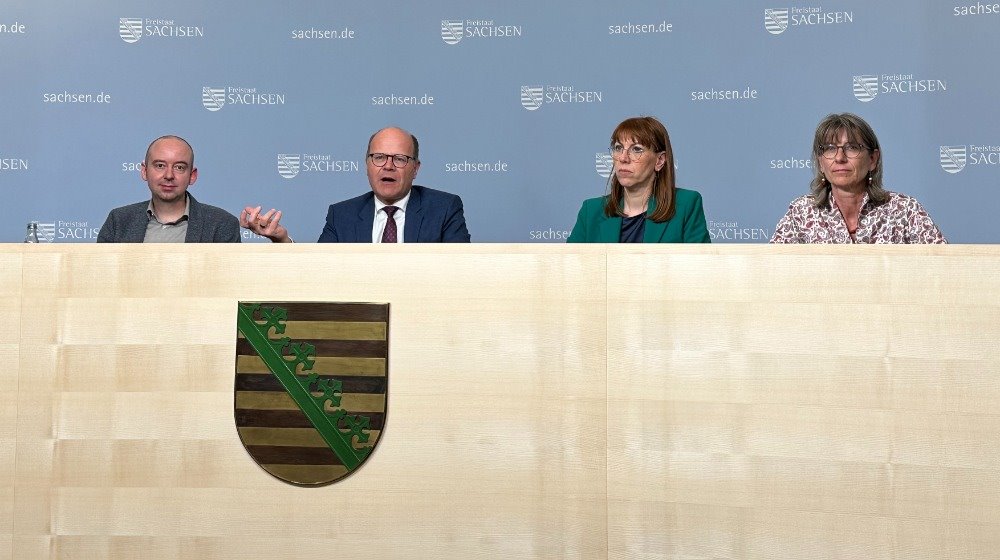The Free State of Saxony is providing new impetus in the field of artificial intelligence - the 3rd AI Congress taking place in Chemnitz on April 16 and 17, 2024 is the current flagship event. At a preliminary press conference, Minister of State Oliver Schenk and Minister of Justice Katja Meier, together with Dr. Martin Voigt from elevait GmbH & Co KG, presented the ambitious plans for the congress and future digital ethics.
Oliver Schenk announced that over 100 submissions had been received from Saxony for the 3rd AI Congress, of which 25 companies will be given the opportunity to present their innovations to a broad audience. He also underlined the importance of the AI Dialogue, which was held with a total of seven events in Saxony. With a view to the great economic potential, Schenk emphasized that AI technologies could play a key role in increasing the gross domestic product. The aim of the dialog is to overcome existing restraints and aim for a gain of up to 10 percent of GDP if around 50 percent of companies use generative AI. He made it clear that data protection can also be seen as a treasure trove of data that makes it possible to train valuable AI systems - a necessary prerequisite to avoid historical distortions such as those caused by missing GDR data and to ensure a diverse data basis. According to Schenk, only training data from the WDR archive is currently available for the GDR.
Minister Meier highlighted the role of the newly introduced ethics advisory board, which will be groundbreaking for the use of AI in the Saxon administration. The Minister emphasized that AI is not an issue that can be avoided; rather, it must be actively shaped. The cooperation between the Ministry of Justice and Leipzig University in researching AI applications in the justice system aims to support people in making judgments, not to replace them. The advisory board will identify perspectives on how AI can be helpful in mass proceedings and in anonymizing judgments, for example.
Dr. Voigt from elevait spoke about the basic research conducted internally and the goal of establishing B2B workshops to allay fears of AI and create acceptance. He pointed out that many companies have data silos that are not being used and that recognizing and using this data is a management task. Schenk and Voigt agree: AI must be accepted and driven forward by the management levels of companies.
Background
The 3rd AI Congress in Chemnitz follows two successful events in Dresden and Leipzig and numerous AI dialogues, establishing Saxony as a center of AI development. With the previous congresses and dialogues, Saxony has proven that it is ready to actively use and shape the challenges and opportunities of AI in order to help shape the digital future. The 3rd AI Congress clearly shows that the Free State of Saxony is ready not only to seize the opportunities of AI, but also to actively shape and ethically frame them. It is a commitment that shapes and drives both Saxony's economic and social development.










